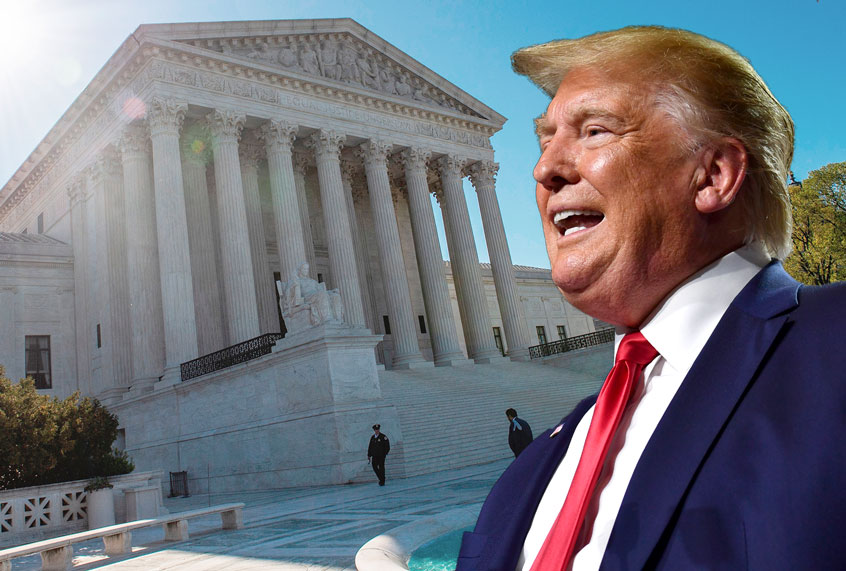The Supreme Court sided with President Donald Trump’s administration in a controversial case that will allow the government to refuse asylum requests from migrants who have not applied for refuge in another country before coming to the U.S.
The Trump administration’s policy had been suspended since July, when a federal judge in California blocked its implementation on the grounds that it violated existing immigration law and had been rushed into effect, according to NBC News.
In their dissents, Justices Ruth Bader Ginsburg and Sonia Sotomayor argued that the Supreme Court should have allowed the case to proceed through the lower courts before issuing a ruling.
“This lawsuit has been proceeding on three tracks: In this court, the parties have litigated the government’s stay request. In the Ninth Circuit, the parties are briefing the government’s appeal. And in the district court, the parties recently participated in an evidentiary hearing to supplement the record,” Sotomayor wrote in her dissent. “Indeed, just two days ago the district court reinstated a nationwide injunction based on new facts . . . Notably, the government moved to stay the newest order in both the district court and the Ninth Circuit. (Neither court has resolved that request, though the Ninth Circuit granted an administrative stay to allow further deliberation.) This court has not considered the new evidence, nor does it pause for the lower courts to resolve the government’s pending motions.”
She continued, “By granting a stay, the court simultaneously lags behind and jumps ahead of the courts below. And in doing so, the court sidesteps the ordinary judicial process to allow the government to implement a rule that bypassed the ordinary rulemaking process. I fear that the court’s precipitous action today risks undermining the interbranch governmental processes that encourage deliberation, public participation and transparency.”
By contrast, the Trump administration argued that they need to restrict migrants seeking asylum because of “an unprecedented surge” of immigrants attempting to illegally enter the U.S. who claim asylum when stopped.
“The rule thus screens out asylum seekers who declined to request protection at their first opportunity,” Solicitor General Noel Francisco argued before the Supreme Court.
This is the second time in 2019 that the Supreme Court has ruled in favor of the Trump administration on a controversial immigration issue. In July, the judges ruled on a party-line vote to lift a stay imposed by a federal judge in California to spend $2.5 billion in Pentagon counter-drug program money to build a southern border wall, according to NBC News.
By contrast, Chief Justice John Roberts defected from the conservative wing of the court to join the liberal side in June in ruling against the administration when it attempted to add a citizenship question to the 2020 census. Roberts noted that “we cannot ignore the disconnect between the decision made and the explanation given . . . If judicial review is to be more than an empty ritual, it must demand something better than the explanation offered. The sole stated reason — seems to have been contrived. We are presented, in other words, with an explanation for agency action that is incongruent with what the record reveals about the agency’s priorities and decisionmaking process.”


